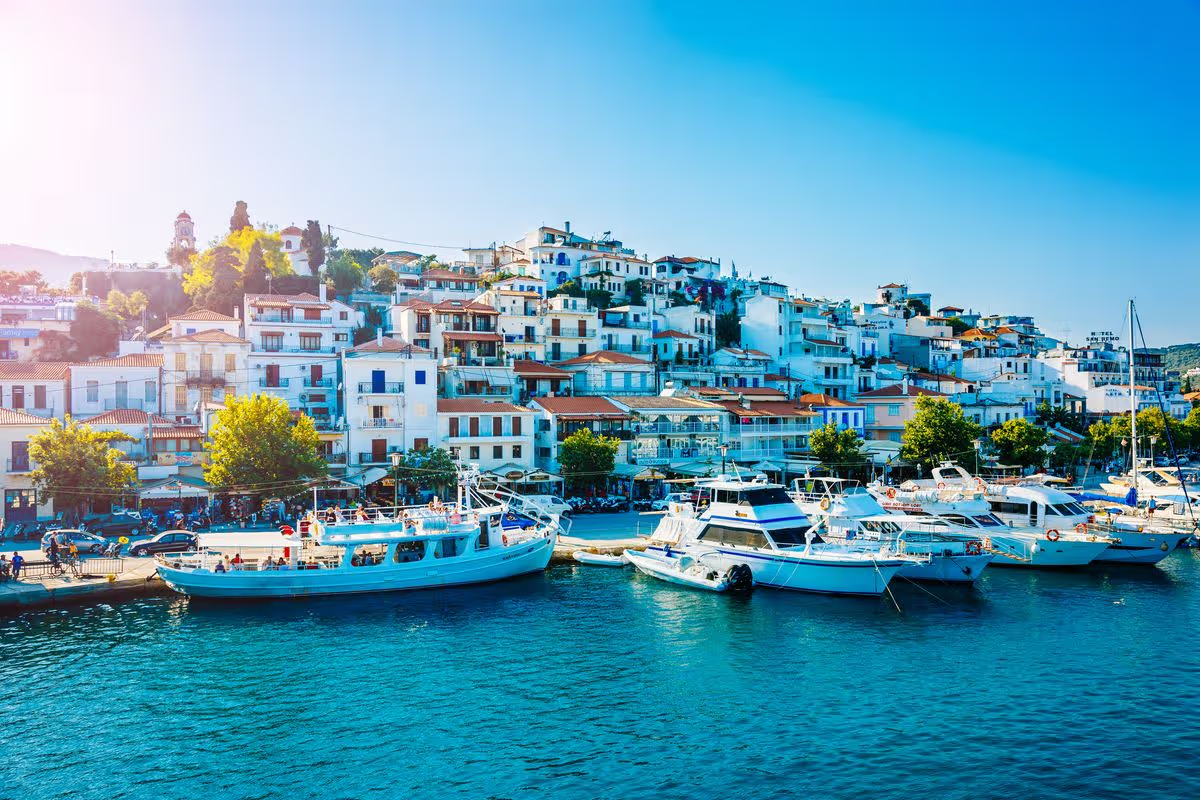A leading travel journalist who visited 27 Greek islands has concluded which three are their favourite and which two they would not return to again with popular islands like Crete and Mykonos ignored
A travel writer who visited 27 Greek islands has concluded which of the islands she has visited are her favourites.
Hannah Logan, a full time travel writer, travelled the length and breadth of the islands to ascertain which they would return to and which they would avoid.
After much consideration, they identified three they’d try again and two they would skip. The three islands in question were Symi, Milos, and Skiathos.
Writing in Business Insider Hannah praised Symi because it felt “more lowkey” than other places such as Mykonos and Santorini. She described it as “the perfect place to relax”.
Meanwhile, Milos was highlighted for having “some of the most stunning beaches in Greece” with Sarakiniko Beach standing out. Hannah added: “Several tiny fishing villages also add a unique factor to this island. In some of them, traditional boathouses have been renovated into cozy, waterfront villas and hotels.”
The third island Hannah took a shine to was Skiathos which she described as “charming” with a “lively” nightlife element and some of the greatest food Hannah had experienced on her travels. Also noted was the open air screenings of Mamma Mia, as some parts of the iconic film were shot on the island.
Whilst Symi, Milos, and Skiathos were favoured by Hannah, she noted that Kos and Mykonos was not to her liking as much. She described Mykonos as “overhyped” and said she wouldn’t return to Kos because “it didn’t feel special” to her.
Hannah isn’t the only individual to comment on the beauty and majesty of some of Greece’s islands with Crete also attracting positive attention.
Recently, Elafonisi beach came second in Tripadvisor’s survey of the world’s best beaches with visitors entranced by its ‘pink sand’.
Although it was beaten by Mexico’s Isla Pasion beach, it was the highest placed in Europe in the table with users praising the area for its “natural beauty, crystal clear waters and unforgettable views”.
However, the beach’s prowess has come at a cost. Despite averaging 4.4/5 across 16,000 reviews holidaymakers have been advised to time their visit right to avoid the crowds with 8am to 11am the best window of time.
Even the official page on Tripadvisor warns visitors, it said: “The amount of pink on display varies with conditions and the season. Regardless, the crystal clear waters make this a popular summer vacation spot, attracting sunbathers and water sport enthusiasts alike.
“Visit in the morning to beat traffic and secure a chair and umbrella before the crowds arrive. Or come in the evening for a stunning sunset when most people have left.”

